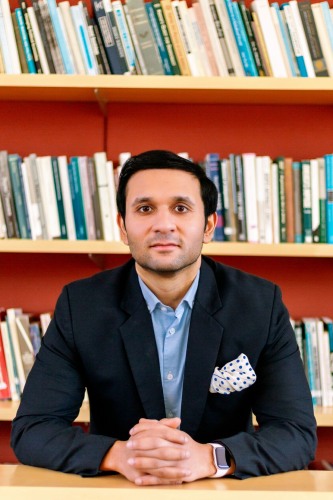
Bhanu Joshi
Biography
I am a Political Science PhD from Brown University specializing in comparative politics with a regional focus on South Asia, particularly India. My research examines the foundational role of state institutions in shaping development trajectories, investigating how governance structures enable or constrain development outcomes across diverse contexts.
My dissertation, "Weak but Working: Bureaucratic Agency, State Capacity, and Public Goods in Urban India," addresses a fundamental comparative politics puzzle: why do jurisdictions with identical institutional designs produce dramatically different governance outcomes? Through rigorous comparative analysis of matched urban pairs in India—cities like Bhopal and Lucknow that operate under the same constitutional framework with similar resources—I illuminate how bureaucratic structures mediate between institutional design and service delivery outcomes.
At the heart of this research lies the concept of conditional bureaucratic autonomy—negotiated spaces where meso-level officials transform abstract policy mandates into concrete public goods through strategic coordination. My multi-method approach combines household surveys with systematic process tracing to isolate specific mechanisms creating "pockets of effectiveness" within patronage-dominated systems. The findings demonstrate that networked public goods (water, sewerage, electricity) diverge dramatically between cities based on bureaucratic arrangements rather than resources, formal institutional design, or partisan alignment.
This research rethinks state capacity in comparative political theory as an emergent property rather than a uniform institutional characteristic. It challenges conventional wisdom by revealing that successful governance frequently hinges less on sweeping reforms and more on creating zones where officials can implement programs effectively without political interference. By examining these conditionally effective governance arrangements, I offer insights into how incremental institutional changes can transform state capacity even in systems historically dominated by patronage politics.
My scholarly approach is anchored in three philosophical principles: contextual embeddedness, recognizing that political institutions function within specific historical landscapes where local conditions shape outcomes; methodological reflexivity, bridging the researcher-subject divide through approaches that capture lived political experiences; and complex institutionalism, viewing political development as nonlinear processes requiring nuanced theoretical frameworks. My pre-doctoral work at Indian policy organizations shaped this philosophy, demonstrating how political science research gains transformative power when engaging with empirical realities and policy conversations.
My other work examines welfare politics and democratic transformation in India, investigating how institutional changes have reshaped state-society relations across regions despite common origins in 1990s reforms.
I employ a multi-method research strategy that combines ethnographic fieldwork, comparative case studies, and quantitative analysis. This blended approach grounds my contributions to comparative political theory in empirical realities while advancing our understanding of governance effectiveness in developing democracies.